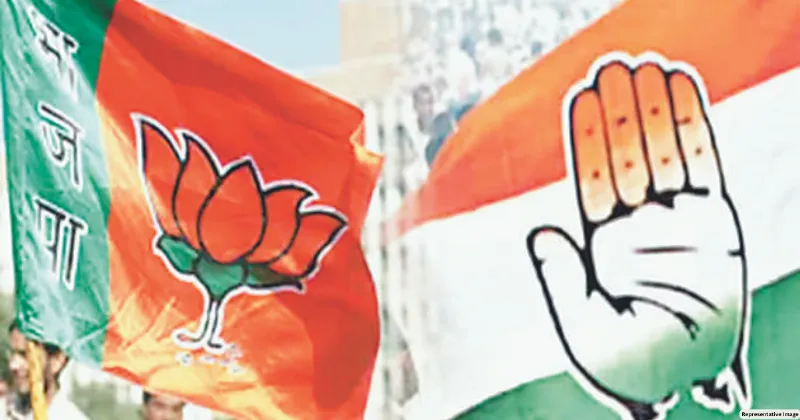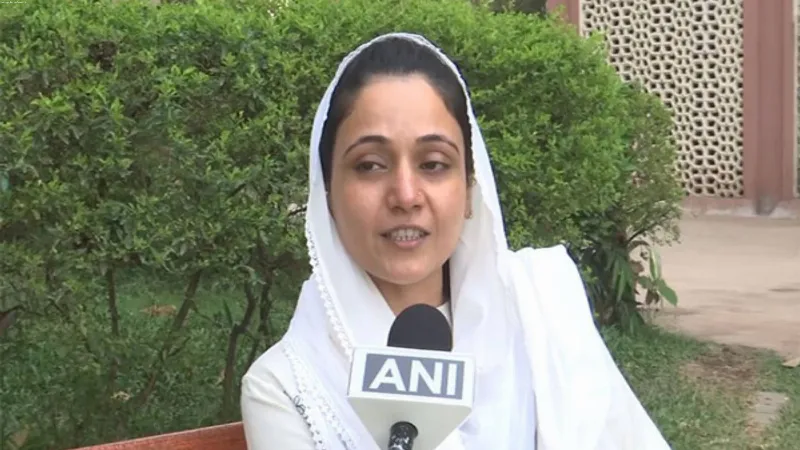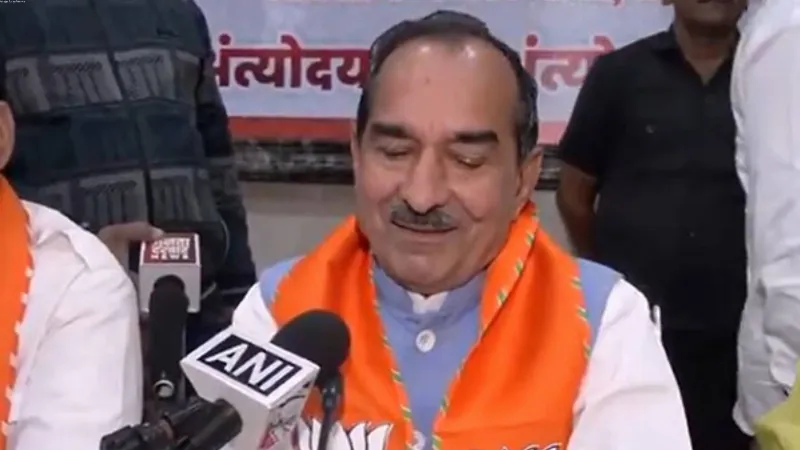Latest News
Sikh Regiment: Legacy of Valour and Bravery in Indian Army

Punjab: Inspired by Guru Nanak Dev's teachings of selfless service, strife for justice, and honesty, Sikh youth have contributed the largest number of recruits to the Indian armed forces. From the snowclad Himalayan mountains to the sultry jungles of the Seven Sisters in the North-East to the shimmering sands of the unrelenting Thar desert in the West, the Sikh personnel in uniform have been guarding our country's frontiers for generations, Khalsa Vox reported.
Their courage never wavers, and their spirit never dampens. As they stand tall and resolute, their inherent, indomitable spirit helps them to endure everything with a grin and a wink, it said. The Sikh community's contribution to the Indian Army dates back to Maharaja Ranjit Singh's time when he raised the 'Khalsa' which was considered one of the most formidable and disciplined armies around that time, Khalsa Vox reported.
Khalsa Vox is an online digest that brings the latest in Punjab politics, history, culture and heritage.
In lieu of this raw courage and unflinching bravery, many Sikhs were recruited into British Indian Army in the colonial period. The movie 'Kesari' depicts the heroic fight of 'Last Man, Last Round' by 21 Sikh soldiers who defended the Saragarhi Fort (KPK, former NWFP) in 1897, Khalsa Vox reported.
Each of them was awarded the Indian Order of Merit (the highest award that was given to Indian soldiers serving in the British Indian Army).
The Sikhs fought gallantly on various battlefields in the First and Second World Wars. The 14th Ferozpur Sikhs, also called The Sikh Pioneers, were particularly applauded for their valour and sacrifices (1846-1922) and were awarded medals like the Victoria Cross for their gallantry.
In all, 83005 Sith Soldiers lost their lives and another 109,045 were wounded in the two World Wars, Khalsa Vox reported.
'War is a conserver of the Khalsa, peace a dissolvent', so, it can be said that Indian Army has kept the spirit of 'Khalsa' alive. From time immemorial, war has been a necessary stimulus for the Sikhs. As Guru Gobind Singhji said
"The Sikhs of Govind shall bestride horses, And bear hawks upon their hands; The Turks who behold them shall fly; One shall combat a multitude And the Sikh who thus perishes; Shall be blessed forever."
Sikh soldiers continued to serve in the Indian Army even after independence in 1947. Punjab, even today, is known as the 'sword arm of the nation'. They have not only contributed to the Indian Army in large numbers at different ranks, but it also has special regiments for Sikhs, and officers from this community have and still are heading Indian Army, Indian Navy, and Indian Air Force (IAF) as service chiefs, Khalsa Vox reported.
The Sikh regiment remains the most decorated regiment of the Indian Army in terms of gallantry awards and good service medals; 10 Victoria Crosses, 2 Param Vir Chakras (Lance Naik Karam Singh, Kashmir Operations, 1948 and Subedar Joginder Singh, Chinese Aggression, 1962) 14 Mahavir Chakras and 68 Vir Chakras. Battalions of the Sikh Regiment have always distinguished themselves in independent Indian Wars. The motto of this regiment is 'Nishay Kar Apni Jeet Karon' (With determination, I will be triumphant) and that of the Sikh Light Infantry, 'Deg Teg Fateh', means prosperity peace, and victory in war!
Subedar Joginder Singh, abo known as the man who fought the Chinese to death, refused evacuation despite being wounded in October 1962, Indo-China war. His war cry was 'Wahe Guruji da Khalsa, Wahe Guruji di Fateh'. He was subsequently severely wounded and captured by Chinese troops, but not before killing several soldiers single-handedly. He was posthumously awarded the Param Vir Chakra, Khalsa Vox reported.
Major General Rajinder Singh (Sparrow) has been awarded the Mahavir Chakras twice (1947, Indo-Pak war, advance and capture of Jhanger and 1965, for exceptional gallantry in the second Indo-Pak war). According to military history, his men fought continuously for 15 days destroying 250 enemy tanks, setting a new record.
Arjan Singh, Marshall of IAF, was the first Sikh to rise to the rank of field Marshall in 1965. In 2002, he was conferred the rank of Marshall, the first and only five-star officer of the IAF. In 1965 he was summoned to the Defense Minister's office for an air support request against Pakistan forces, he replied, "...in an hour" and true enough to the Punjabi tradition of keeping their word at any cost, the IAF struck Pakistani offensive 'in an hour'.
General Bikram Singh became the second Sikh to command the 1.3 million-strength Indian Army in 2012.
Admiral Karambir Singh Nijjar became the first Sikh Navy Chief in March 2019, Khalsa Vox reported.
Air Chief Marshall, Dilbagh Singh started his RIAF career as a pilot in 1944. His flying career spanned from Spitfire to training and raising the first MIG-21 squadron in India. He became the Chief of air staff from 1981-1984.
General Joginder Jaswant Singh was a third-generation soldier and the first Sikh to lead the Indian Army as he became the 11th chief of Army staff in 2005.
Subedar Major (Honorary Captain) Bana Singh is the recipient of Param Vir Chakra for gallantry during Siachen Operation in 1987. The peak which was conquered by him has been named 'Bana Top' in his honour, Khalsa Vox reported.
These are just a handful of Sikhs who have done their community and country proud. The Sikhs have made it their 'mantra' to follow the teachings of their Guru by defending their country and countrymen, whatever it takes. They will always protect their country as they have been doing for centuries. Thus, it can easily be said that 'Punjab is the right hand of India and Sikhs, the muscles of this right hand'. (ANI)














